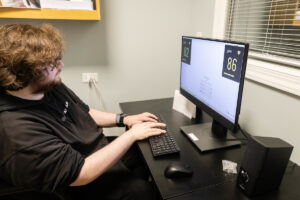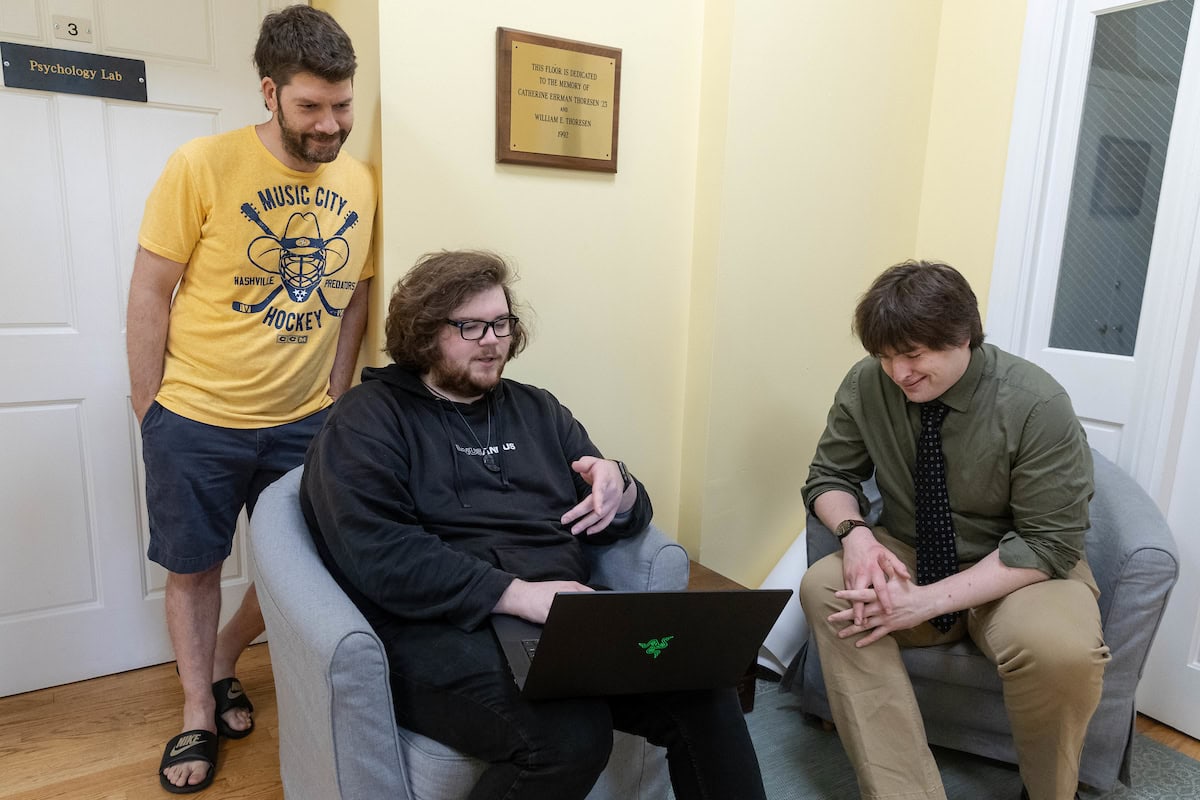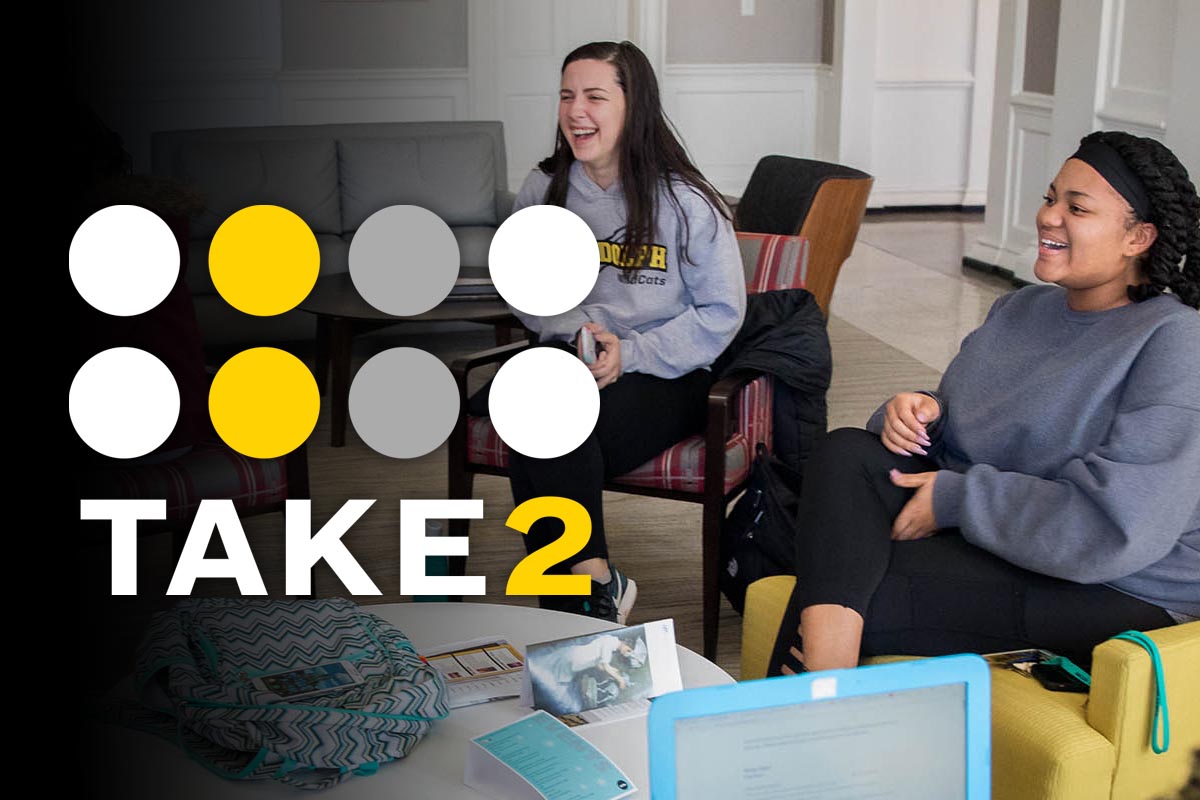Research explores adding empathy to online conversations
Randolph’s Summer Research Program is a competitive, paid program that pairs students with faculty members to conduct research in their areas of interest. This story is part of an ongoing series featuring their work on campus this summer.
 In a world dominated by screens and keystrokes, where face-to-face conversations aren’t always a given, something essential is sometimes lost: human connection.
In a world dominated by screens and keystrokes, where face-to-face conversations aren’t always a given, something essential is sometimes lost: human connection.
A Randolph Summer Research Program project is working to change that by integrating real-time physiological data—think heart rate or skin response—into text conversations.
“When you’re behind a screen, you lose that understanding about how the other person is responding,” said psychology professor Tim Patrick, using a social media post as an example.
“It becomes a competition, rather than having a dialogue,” he said. “I think we sometimes assume the other person is just frothing at the mouth, waiting for our response, and lose sight of the fact that they’re human, too. They’re probably nervously anticipating our response, and there’s a lot of anxiety that everyone is experiencing.”
This summer, he teamed up with psychology majors Daniel Adams ’26 and Luke Chapman ’26 for the project.
“Psychology is a very diverse field,” Chapman said. “I have a good amount of background in computer science alongside psychology, and Daniel has a huge interest in social psychology. We wanted something that would sort of meld our interests together.”
For the experiment, volunteers were paired up for real-time, text-based conversations on topics Patrick and his team knew they disagreed on, determined by surveys completed beforehand.
Separated into different rooms, participants chatted back and forth while hooked up to monitors tracking their heart rates. A display in the corner of each of their screens showed both their heart rate and that of their conversation partner.
“We wanted to see if adding that biometric data would allow people to increase their empathy levels and maybe shift their perspective,” Chapman said.
“The idea is that, in the future, there could be some sort of dynamic display that fluctuates and conveys that nonverbal feedback to the other person,” Adams added. “If you want to be poetic about it, we’re showing there’s a heart behind what is being said, a person with their own complex feelings and thoughts.”
Tags: faculty student research, psychology, student research, summer research 2025

